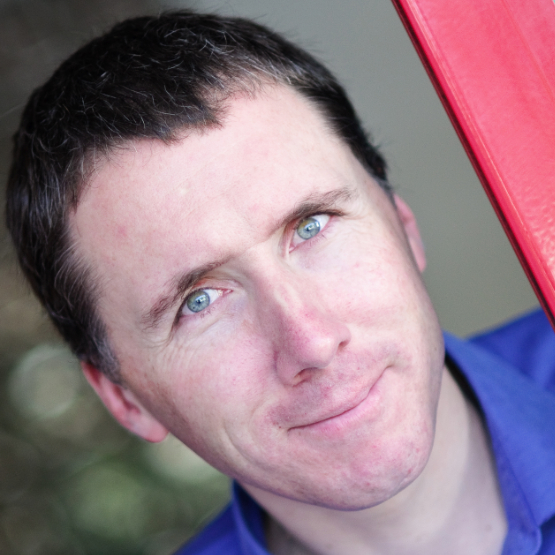I love books.
But a book is your servant – not your master. There’s only one book that is your master and that’s the Bible. You are the master of every other book.
So tell it who’s boss : stand on it, write in it, skip bits.
There’s a reason why you’re reading this book. It could be for entertainment or education or transformation. Whatever your reason, read the book in a way that best serves that purpose.
What speed do you drive your car ? It’s a ridiculous question, because we all vary our speed depending on the road conditions. It’s the same for reading. You need to vary your speed because different conditions demand different reading speeds. You should adopt different speeds for:
different books different genres need different reading speeds
different chapters some chapters will be more significant to your reading goals than others
different paragraphs slow down for explanatory, summary and linking paragraphs ; speed up for illustrations, digressions, introductions, stories, examples, case studies
different purposes ‘scanning’ to get a general sense of the author’s argument, ‘in-depth reading’ to grapple with an author’s argument, ‘search reading’ to find particular information or good quote
So always preview a book or article. Look at the blurb, preface, contents page, flick through it or scan it. Read chapter summaries first ! The aim is :
To determine whether you should read the book. ( Is it relevant ? Too difficult ? Too simple ? )
To determine what you should read. Which chapters and sections should you read ? Could you use the index to get the information you want?
To determine how fast to read. In-depth or scanning ? ( This may vary within one book. )
To get a sense of the whole picture and the basic argument so you understand where any ‘bit’ of the book fits into the whole.
To identify key words that will flag up information that matters or will fulfil your goals.
How to read a chapter in five minutes
Here’s a simple approach to skim-reading. Read the first sentence or two of each paragraph – it will often be a summary statement that the paragraph then expounds or illustrates. Sometimes it sets the scene and the second sentence is the summary statement. You’ll find this a surprisingly effective approach – as long as the book is well written.
I’m not suggesting you read every book in this way ! You might think it sounds lazy, but it’s actually hard work. If I’m researching a topic I’ll read several books slowly to ensure I get a really good grasp of the issues. Then I’ll read others book much faster to pick up additional ideas, slowing down when I come across something fresh.
Read analytically
We all know the experience of reading several pages and then realising you can’t remember anything you’ve just read ! We need to be proactive in our reading. Remember this book is your servant and you’ve got to make it work for you. Do that by asking questions :
- What questions is the author posing ?
- What answers are they proposing ?
- How does their argument develop ?
- What are the main points of the argument ?
- With history, biography or narrative, ask what perspective the author brings ?
- What message are they trying to convey through the narrative ?
- Identify key sentences or summary statements.
- What evidence does the author give or is it simply unsubstantiated opinion ?
- What implications does the author identify ?
Read critically
By critically I don’t mean negatively. I mean engaging with the argument. See what you can learn. Decide whether you agree. Think through putting it into practice.
- Is their argument informed, logical, practical and complete ?
- Is there something that I don’t understand or which is unclear ?
- Is there something I don’t agree with ?
- Is there something I find particularly striking or compelling ?
- Is there something that I would like to discuss further ?
- What difference will this make in practice ?
- Do not criticise until you understand. Why is the author arguing this ? What is their motivation ?
Make notes as you go along
Unless you’re reading a novel for fun, remember that reading is not what counts : it’s learning that counts. Alluding to all the books you’ve read may puff your ego, but don’t confuse it with acquiring wisdom. So always read with a pen or pencil in hand. Mark in the margins – key points in argument, striking sections and relevant information. My goal is to mark a book so if I need to refer to it again I’ll only need to look at the sections marked in pencil. I also note key pages in the inside cover. Taking notes as you go along can work if you already have a specific purpose, but it can lead to too many notes and reduces critical engagement. Taking notes at end of each chapter or the end of the book helps prevent too many notes.
Go back over what you have read or learnt. Find some time later to review what you read recently last time ( perhaps when you next set aside time for study ). Ideally do this two or three times.
About the Author

Tim Chester is married to Helen and father to two daughters, a writer, Bible teacher and church planter, pastor of The Crowded House in Sheffield, UK whose congregations or ‘gospel communities’ meet in homes and emphasise sharing lives together rather than programmes and structures. Tim is founder and associate director of the Porterbrook Seminary and the author of over 20 books on a wide variety of subjects but with a common concern to make the link between theology and practice.
www.timchester.co.uk

